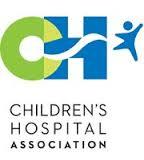Association Proposes Ways to Save Money for Sickest Children on Medicaid

Children's Hospital Association
Georgia families and those from across the nation are in Washington D.C. to raise awareness about the challenges facing children who receive Medicaid and the best ways to reform the program. They’re meeting with members of Congress as part of a family advocacy day hosted by the Children’s Hospital Association. The visit comes as Congress considers whether to cut Medicaid and other entitlement programs to reduce the federal deficit.
As Congress considers Medicaid reform, Children’s Hospital Association President Mark Wietecha says currently 40 percent of the nation’s children are covered under the program.
“This is a really important program, so we’re not asking for no reductions, but we are asking for a fair assessment in light of the fact that these are our kids.”
He says children on Medicaid with complex medical issues face the biggest challenges. Those children considered sickest of the sick often see multiple doctors and specialists. Wietecha says the problem arises when the treatment they need is out of state.
“For example you know in Atlanta you know we have a very large children’s hospital. There’s actually kids from the edges of Alabama, North Carolina, South Carolina who come to Atlanta. Currently, it’s very difficult to cross state lines on Medicaid. The program is very state focused in each state. The programs are very specialized and their needs are quite rare.”
He says six percent of the children on Medicaid have complex medical issues, but they represent 40 percent of the costs. That’s why the association is proposing to create more coordinated and organized pediatric networks. Wietcha says those networks could assist families by allowing them treatment options on a more regional rather than state basis.
“Our specific proposal there is to create a national framework for these children that works with the state based Medicaid programs but allows for example easier access across state lines.”
Wietcha says that framework would support the sharing of data, clinical standards, and quality measures. He says the changes could create billions of dollars of savings over a 10 year period and could also reduce costs for state Medicaid programs like Georgia’s.
9(MDAxODM0MDY4MDEyMTY4NDA3MzI3YjkzMw004))








